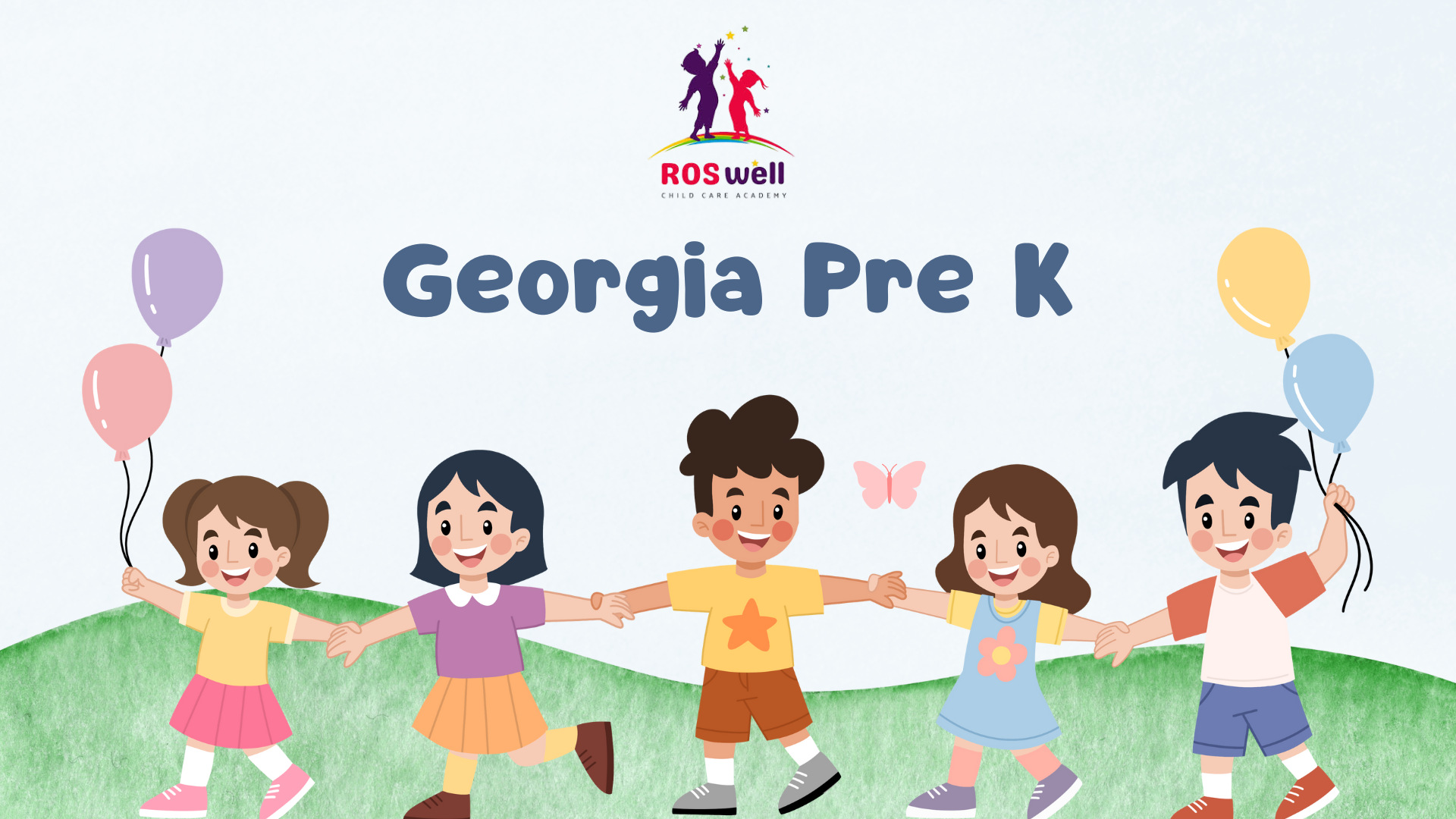- Email: roswellchildcareacademy@gmail.com
- Phone: 470-282-1521

Early childhood education has never been more important, and Georgia Pre K programs are receiving all the attention in 2025. Families from all over the state are vying for a spot in these kindergarten readiness programs for four-year-olds. But why is this becoming more and more popular?
Knowing Georgia Pre K’s success can help you make better decisions for your child’s future, regardless of whether you’re a first-time parent or comparing preschools. Let’s examine why these programs are so popular, what makes them unique, and how they are influencing the development of young people’s minds.
Georgia Pre K is a state-funded program offering free pre-kindergarten education to eligible four-year-olds. Even though it has been around for more than 20 years, its popularity and demand have increased to unprecedented levels in 2025. What’s that? Because it develops social skills, academic readiness, and structured play in a way that prepares kids for life, not just school.
Both private Childcare Academies and public schools that satisfy state quality standards offer these programs. They follow a developmentally appropriate curriculum and are instructed by certified teachers.
Kids in learn early literacy, math, and science concepts through play-based activities. It’s not about memorizing facts it’s about learning how to think, ask questions, and explore the world.
All lead teachers must hold specific early childhood credentials. The result? Classrooms led by educators who know how to guide four-year-olds through the delicate process of school readiness.
One of the most attractive parts of Georgia Pre K is that it’s tuition-free for qualifying families. And unlike many free programs, the quality is excellent. Class sizes are small, teacher-child ratios are low, and classrooms are well-equipped.
Because Pre K is often hosted in public schools and licensed Childcare Academy centers, families have flexibility. Many locations offer extended hours or wraparound care for working parents.
In addition to academics, Georgia Pre K places a high priority on teaching children empathy, friendship, and emotional intelligence. Everyday routines teach kids how to share, take turns, and settle disputes amicably. This emotional foundation is necessary for success in life, not just in school.
The Georgia Pre K curriculum is more than ABCs. It covers communication, social-emotional learning, motor development, and problem-solving. Teachers focus on the whole child, helping children thrive in and outside the classroom.
Classrooms are designed to be inclusive. Children of all backgrounds, languages, and learning needs are welcomed and supported. This exposure helps kids build empathy and social skills early.
Pre K programs emphasize physical activity, healthy eating, and regular routines. In 2025, many classrooms even incorporate mindfulness and sensory-friendly practices to help kids manage emotions better.
Children who attend Georgia Pre K do better in kindergarten and beyond, according to studies done by the Georgia Department of Early Care and Learning (DECAL). They have better peer relationships, longer attention spans, and stronger language abilities.
Furthermore, research indicates that early access to structured education closes the achievement gap, particularly for kids from underprivileged or low-income families.
Enrollment typically opens early in the calendar year. Here’s what you’ll need:
Pro tip: Spots fill up fast, especially in popular schools and Childcare Academy locations. Keep a list of backup programs in case your top pick is full.
Georgia is increasing the availability of Pre K through community partnerships and new funding. By 2025, waitlists are getting shorter, more classrooms are being added, and teachers are getting better support and training than ever before.
To give Georgia Pre K students a head start in 21st-century skills, some pilot programs also place a strong emphasis on technology integration and STEAM (Science, Tech, Engineering, Arts, Math) exposure.
The popularity of Georgia Pre K in 2025 isn’t just a trend it’s a reflection of how parents value early education that balances structure, play, and academic growth. With its free tuition, professional teachers, and developmentally sound curriculum, this program stands out as one of the smartest first steps in a child’s educational journey.
Whether you’re planning ahead or applying now, don’t overlook the impact Georgia Pre K can have on your family. From public schools to your local Childcare Academy, options are available and expanding so now is the perfect time to make your move.
Yes, the program is state-funded and free for all eligible four-year-olds who are Georgia residents. Some schools may offer additional paid services like extended care.
While both offer early education, Georgia Pre K follows a specific state-approved curriculum and teacher certification standards. It’s designed to align closely with kindergarten readiness benchmarks.
Look for low teacher-student ratios, hands-on activities, a welcoming environment, and regular communication from staff. Whether it’s a school or a Childcare Academy, quality should always be a top priority.
Transfers are possible, but spaces are limited. It’s best to choose a location that fits your work schedule and your child’s needs from the start.
Comments are closed